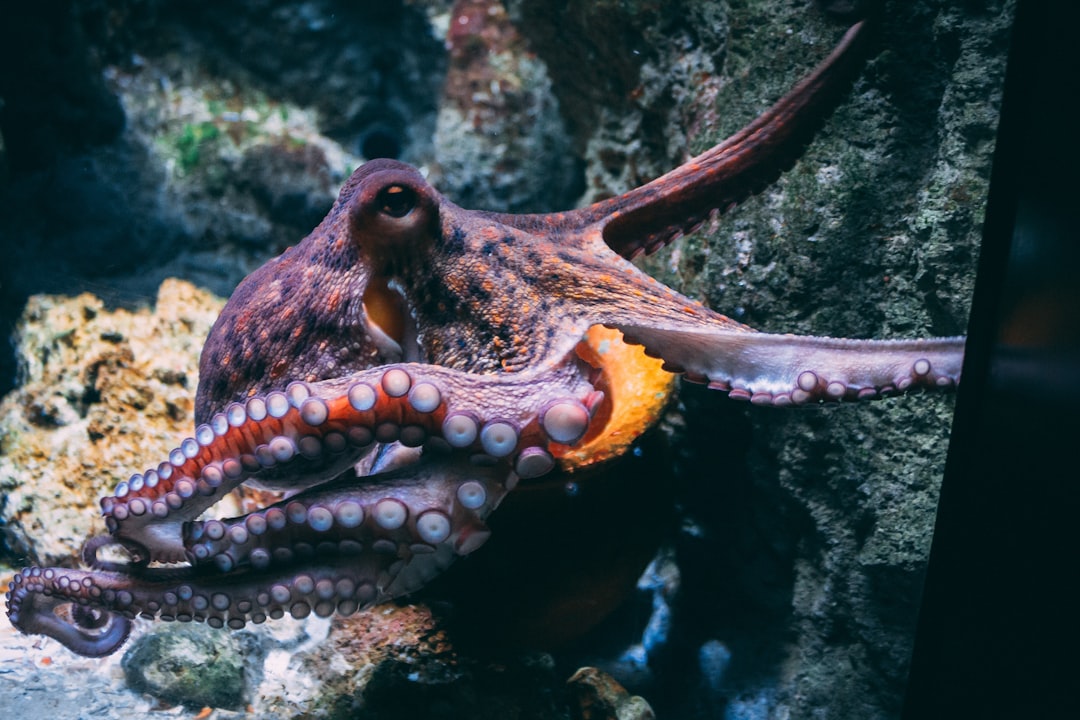Our canine companions have pretty robust stomachs, and they often try to convince us that anything we’re eating is fair game for them too! As responsible pet parents, it’s our job to know what’s safe and what’s not. So, what about octopus? Can dogs eat octopus? The short answer is yes, but there are some important things to consider before offering it to your furry friend.
Octopus for Dogs: A Deep Dive
Yes, cooked octopus can be a relatively safe and even beneficial treat for dogs in moderation. It’s not toxic, and it offers some nutritional perks. However, raw octopus poses significant risks, and even cooked octopus needs to be prepared and served carefully to avoid potential problems. Understanding these nuances is crucial for your dog’s safety and well-being.
Nutritional Benefits of Octopus for Dogs
Octopus is a lean source of protein, essential for muscle development and repair in dogs. It’s also packed with nutrients, including:
- Omega-3 Fatty Acids: These are beneficial for a dog’s skin and coat health, cognitive function, and can help reduce inflammation.
- Taurine: Important for heart health and vision.
- Iron: Essential for red blood cell production and preventing anemia.
- Vitamin B12: Plays a role in nerve function and cell growth.
- Selenium: An antioxidant that supports immune function.
Risks of Feeding Octopus to Dogs
While octopus can offer some health benefits, it’s not without its potential risks:
- Choking Hazard: Octopus, especially if not properly cut into small pieces, can pose a choking hazard, particularly for smaller breeds or dogs that tend to gulp their food.
- Digestive Upset: Introducing new foods can sometimes cause digestive issues like vomiting or diarrhea. Start with a very small amount to see how your dog reacts.
- High Sodium Content: Octopus can naturally be high in sodium. Too much sodium is bad for dogs. Avoid adding salt during preparation.
- Parasites and Bacteria (Raw Octopus): Raw octopus can harbor parasites and harmful bacteria like Salmonella, which can cause serious illness in dogs. Never feed your dog raw octopus.
- Allergies: While less common than allergies to chicken or beef, some dogs can be allergic to seafood, including octopus. Watch for signs of an allergic reaction, such as itching, hives, swelling, or difficulty breathing.
- Heavy Metals: Seafood can sometimes contain traces of heavy metals like mercury. While the levels are generally low, it’s best to offer octopus as an occasional treat rather than a dietary staple.
How to Safely Introduce Octopus to Your Dog
If you decide to give your dog octopus, follow these steps to minimize the risks:
- Cook it Thoroughly: Always cook the octopus completely to kill any parasites or bacteria. Boiling, baking, or grilling are good options. Avoid frying, as this adds unnecessary fat.
- Cut into Small Pieces: Cut the cooked octopus into small, manageable pieces to prevent choking.
- Start Small: Introduce octopus gradually. Offer a very small amount (a piece or two) initially and monitor your dog for any adverse reactions like vomiting, diarrhea, or allergic symptoms.
- No Seasonings: Avoid adding any salt, spices, or sauces when preparing octopus for your dog. These can be harmful or irritating to their digestive system.
- Occasional Treat: Octopus should be given as an occasional treat, not as a replacement for your dog’s regular, balanced diet.
- Consult Your Vet: If you have any concerns about feeding your dog octopus, or if your dog has any underlying health conditions, consult with your veterinarian first.
Pros and Cons of Feeding Octopus to Dogs
- Pros:
- Good source of lean protein.
- Rich in Omega-3 fatty acids.
- Contains essential vitamins and minerals.
- Can be a novel and interesting treat.
- Cons:
- Potential choking hazard if not properly prepared.
- Can cause digestive upset in some dogs.
- Raw octopus poses a significant risk of parasites and bacteria.
- Potential for allergic reactions.
- Naturally high in sodium content.
Frequently Asked Questions
Can puppies eat octopus?
It’s best to avoid feeding octopus to puppies. Their digestive systems are more sensitive than those of adult dogs, and they are more susceptible to choking hazards. If you are considering offering octopus to a puppy, consult with your veterinarian first.
How much octopus can I give my dog?
Octopus should only be given as an occasional treat. The amount will depend on the size of your dog. A small dog might only get a few small pieces, while a larger dog could have a slightly larger portion. Remember to account for the calories and nutritional content when calculating your dog’s daily food intake.
What are the signs of an allergic reaction to octopus in dogs?
Signs of an allergic reaction can include itching, hives, swelling of the face or muzzle, difficulty breathing, vomiting, and diarrhea. If you notice any of these signs after your dog eats octopus, contact your veterinarian immediately.
Can dogs eat dried octopus?
Dried octopus is generally very high in sodium. Due to this, it is not a recommended treat for dogs. The high sodium content could cause dehydration and other health issues.
In conclusion, while cooked octopus can be a safe and even nutritious treat for dogs in moderation, it’s essential to prepare it carefully and introduce it gradually. Never feed your dog raw octopus, and always monitor them for any signs of digestive upset or allergic reactions. By following these guidelines and consulting with your veterinarian, you can help ensure that your furry friend enjoys octopus safely and responsibly. Remember, a balanced diet is key for a happy and healthy dog!

